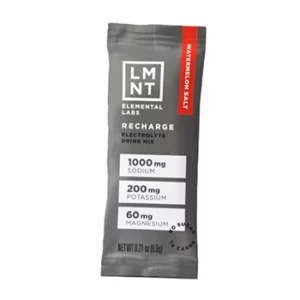Chances are, when you think of the word “metabolism” you automatically think of weight loss. But your metabolism isn’t just about dropping a dress size – it’s about giving your bod the energy to do everything it need to do, both on the inside and out. Our friends at Food Matters give us the skinny on that elusive idea of what your metabolism is, isn’t, and how to kick it into high gear…
There’s a lot of different theories surrounding metabolism. From what it is, ways to boost it, and what lifestyle choices actually make a difference to how it works. So we’ve found out all the essentials you need to know to help make sense of your metabolism!
What is Metabolism?
Your metabolism is not a ‘thing’ as such, like your heart, lungs or other organs. It’s the collection of natural processes that occur in your body to keep you alive. Just like breathing isn’t a physical thing, but more of a process. Your metabolism is the sum of the physical and chemical processes that produce energy to allow your body to do all it needs to do.
How Does Metabolism Work Exactly?
As your metabolism is a whole range of processes producing energy in your body, it needs to be told how fast or slow to do them. This is where your thyroid plays an important role. It is the ‘moderator’ of your metabolism, overseen by the pituitary gland ‘the Manager’, and the ‘boss’ – your hypothalamus! Your hypothalamus sends signals to your pituitary, which sends out signals to your thyroid to release hormones to either slow or speed up your metabolism.
The pituitary affects the thyroid gland by producing a hormone called thyroid-stimulating hormone (TSH), which prompts the thyroid to release more T4 and T3. If there is too much T4 circulating in the blood, the pituitary reduces the amount of TSH produced, which then causes thyroid activity to slow. If there is too little T4, the pituitary increases the amount of TSH. In this way, T4 and T3 levels in the blood are kept relatively constant.
What Affects Your Metabolism?
Your metabolism can be affected by a range of things including:
- age
- gender
- body composition i.e. muscle-to-fat ratio
- diet
- physical activity
- overall lifestyle
However, how much your metabolism is affected by each varies greatly, and typically, the things you can’t change, tend to affect your metabolism the most e.g. age and gender.
To keep your metabolism and therefore, all the processes in your body running smoothly, you need to make sure that you’re giving your body the fuel it needs – energy. Each metabolic process in the body requires energy to occur. In fact 60-70% of your total daily energy expenditure (TDEE), calculated according to your age, gender, weight, height, and physical activity levels, is used up by vital metabolic functions. That’s your Basal Metabolic Rate (BMR).
Can You Speed Up Your Metabolism?
Your metabolic rate is the rate at which your body burns energy to function. There are a few ways you can increase your metabolic rate. But first, let’s break down how the energy, or calories, from what you eat typically gets used:
- 60-70% vital functions such as breathing, heart rate, and body temperature (this is your BMR – the amount of energy you need just to survive if you did nothing but sleep very still)
- 15-30% usually goes towards daily activities such as physical activity, housework, gardening, gym workouts etc
- 10-15% to your digestion – the functions associated with the breakdown of the food and drink you eat into compounds the body can use to repair, rejuvenate and function optimally
As you can see, the majority of the energy we consume is burned up just by existing!
Therefore you can increase your metabolism by exercising and moving more and eating regularly, but they won’t make as big of an impact as you may have originally thought!
What Foods support a healthy metabolism?
There are some foods that do help to fire up your metabolism, but the effect is minimal and only for a short period of time. These include spicy foods such as chili because of its heat, caffeinated beverages due to their stimulatory effects, and high protein foods as they take longer to digest. However, it’s much more important to focus on a healthy diet and lifestyle in general.
7 Ways To Eat For A Speedy Metabolism
Eat It Clean
Eating a whole-food based, minimally processed diet.
Drink It Up
Drinking plenty of water each day.
Veg Out
Eating plenty of vegetables to boost nutrient intake and dietary fiber.
Cut The Junk
Reducing intake of refined foods such as sugars, flours, and processed, packaged foods and fast food.
Go Pro
Opt for lean protein sources that fit your dietary needs e.g. lean meats, beans, and legumes.
Get Fat
Consuming fats from whole-food sources including nuts, seeds, olive and coconut oil. Fish, hemp seeds and chia seeds is also a fantastic source of anti-inflammatory omega-3s as well.
Slow It Down
Eating to feel satisfied, not full. Monitor your portion sizes and try to eat slower to give your body a chance to tell you you’re full before overdoing it. A healthy weight is important for a healthy metabolism.
To learn more foods and practices that speed up your metabolism, visit Food Matters by clicking through here!















